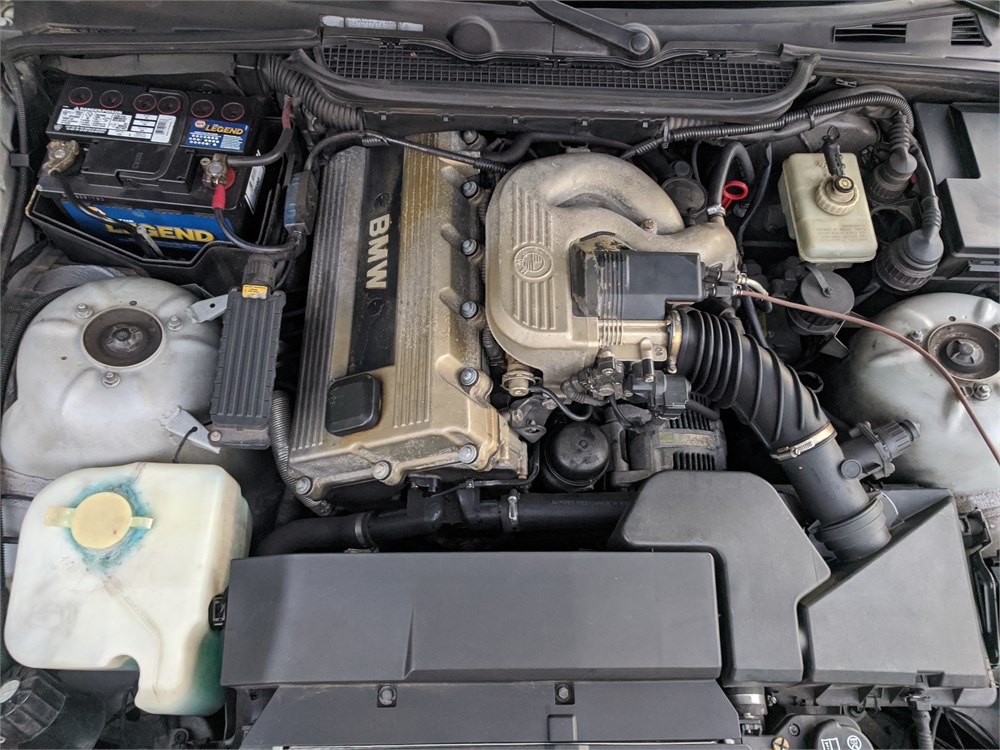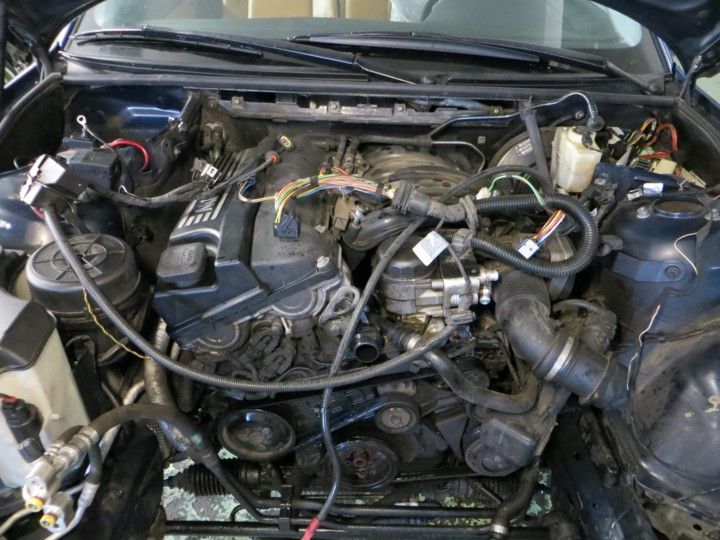BMW 318ti: A Timeless Compact with Classic Appeal
Crucial Considerations for Picking the most effective Engine for Your Demands
In the realm of selecting the perfect engine to meet your needs, several important aspects need careful factor to consider to guarantee optimum performance and performance. From the nuanced equilibrium between power and efficiency to the often-overlooked elements of upkeep and service needs, each aspect plays an essential role in identifying the most ideal engine for your specific requirements.
Power and Efficiency
When assessing engines for optimal efficiency, it is essential to focus on both power result and effectiveness. Power output measures the capacity of an engine to produce energy, which directly impacts its performance. A high power outcome is necessary for demanding tasks such as heavy-duty applications or high-speed needs. It makes certain that the engine can handle the work effectively and effectively. Nevertheless, power alone is not adequate; efficiency plays a significant function in determining the overall efficiency of an engine. Performance describes just how well the engine transforms gas into usable energy. An extra reliable engine will certainly provide far better gas mileage, reduced exhausts, and lowered operating expense. Striking the best equilibrium in between power output and efficiency is crucial to picking an engine that meets your specific demands. When making this choice, it is vital to consider elements such as the planned usage of the engine, environmental impact, and lasting cost effects. By thoroughly assessing both power and efficiency, you can choose an engine that delivers optimum performance and fulfills your needs properly.
Gas Performance and Economy
In the world of engine selection, the consideration of fuel effectiveness and economic climate holds critical value. Fuel performance describes the engine's capacity to transform gas right into power with minimal waste, directly influencing operating expense and environmental sustainability. bmw 318ti. When picking an engine, evaluating its gas economic climate is crucial to determine long-lasting financial savings and environmental influence. Engines with greater gas performance not just lower gas expenses yet also decrease carbon emissions, adding to a greener procedure.

Compatibility and Application
Thinking about the fuel efficiency and economic situation of an engine, the next essential facet to address is its compatibility and application within certain functional contexts. Compatibility refers to how well the engine incorporates with the general system or equipment it powers. It involves aspects such as physical dimensions, placing choices, electrical interfaces, and control systems. Ensuring compatibility is vital to prevent concerns such as overheating, vibrations, or power imbalances (bmw 318ti).
Various engines are developed for certain functions, whether it be commercial machinery, aquatic vessels, cars, or power generators. Recognizing the intended application enables for the selection of an engine that can provide the necessary power outcome, torque, and operational features.
Maintenance and Solution Demands
Maintenance and service needs play an essential role in making sure the durability and optimal performance of an engine. Normal maintenance is important to stop break downs, expand the life-span of the engine, and maintain its effectiveness. When picking an engine, it is necessary to think about the producer's recommended upkeep schedule and the availability of service centers or qualified technicians.
Factors such as the frequency of oil adjustments, filter substitutes, and total inspections can considerably affect the engine's performance. Some engines may call for even more frequent servicing based on their design and use, while others might have longer periods between maintenance checks. It is essential to adhere to these service requirements to avoid costly fixings and unanticipated downtime.

Price and Budget Considerations
Budget plan restrictions usually play a substantial role in the decision-making procedure when choosing an engine for a specific application. When thinking about the cost and spending plan implications of picking an engine, it is important to analyze not only the first purchase rate but additionally the long-term expenditures connected with upkeep, fuel usage, and potential upgrades or fixings. It click here to read is vital to strike a balance between the ahead of time cost of the engine and its overall lifecycle expenses to ensure that the selected engine continues to be economically lasting throughout its operational life expectancy.
Variables such as fuel dependability, effectiveness, and longevity can straight influence the total cost of ownership of an engine. While a much more pricey engine might have greater ahead of time prices, it could potentially cause lower maintenance and fuel expenses in time, therefore providing much better value in the future. Furthermore, taking into consideration the accessibility and see this expense of spare components, along with the simplicity of upkeep and solution, can assist protect against unanticipated financial strain in the future. By meticulously reviewing these price and spending plan factors to consider, you can make an enlightened choice that lines up with your monetary restrictions and operational requirements.
Conclusion

Gas performance refers to the engine's capability to transform additional hints gas into energy with marginal waste, directly affecting operating expenses and ecological sustainability.Factors influencing gas efficiency include engine style, burning performance, and overall performance optimization. Furthermore, picking the ideal fuel type and grade as suggested by the engine supplier can further enhance effectiveness and extend engine life-span.
Engines with excellent utility features and easily offered components can lower upkeep prices and minimize the time the engine is out of operation - bmw 318ti. It is vital to strike an equilibrium in between the ahead of time price of the engine and its total lifecycle prices to ensure that the chosen engine remains financially sustainable throughout its operational life expectancy